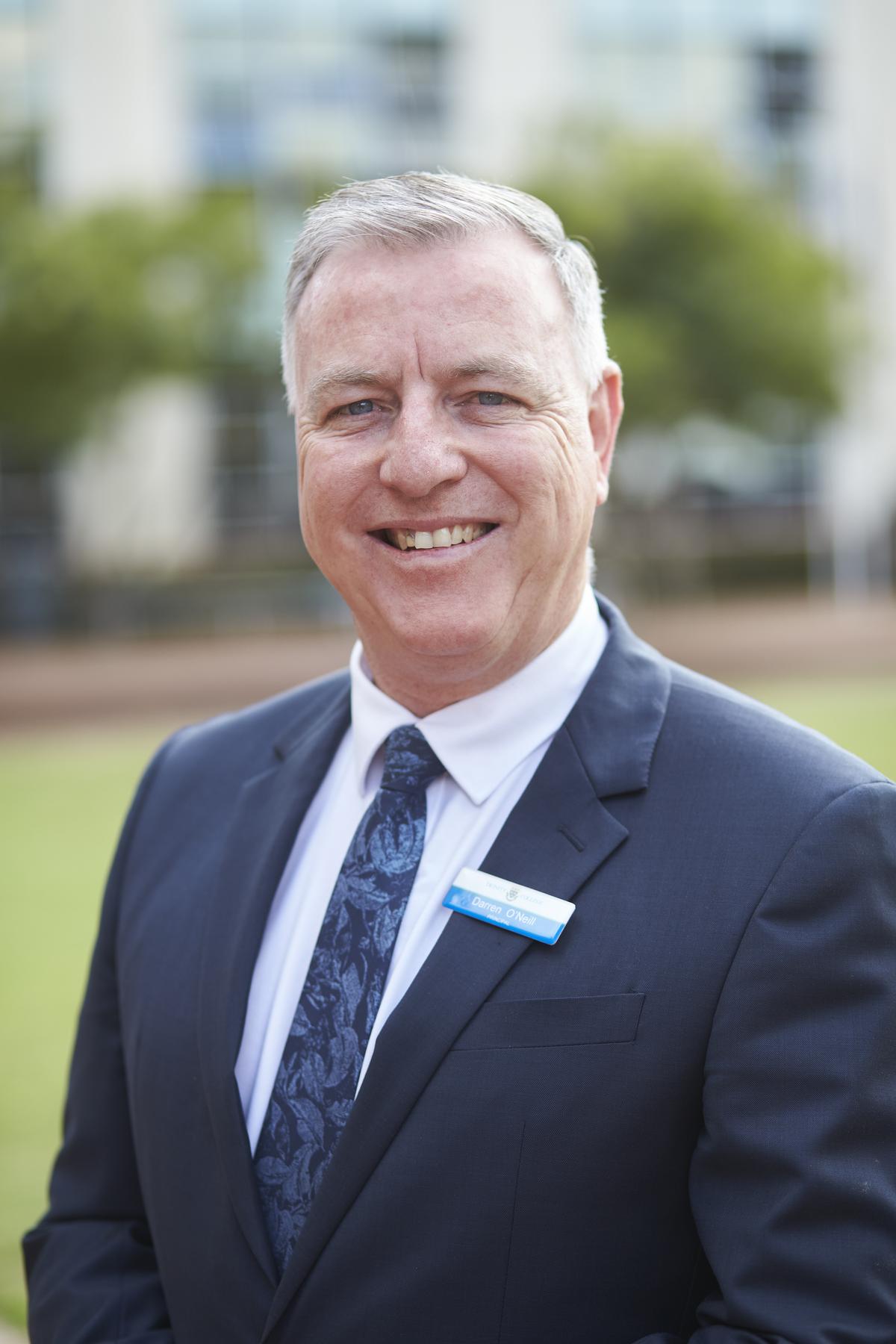Principal's Message

Raising Good Young Men
Permeating from similar stories on the east coast, some recent local media attention has focused on single-gender schooling. Opinion pieces, rather than any research-based evidence, has sought to list their perceived advantages and disadvantages in comparison to co-educational settings. Invariably, and in my opinion rather lazily, such articles always seem to circle back to all boys’ schools, highlighting matters related to respect campaigns, consent education and perceptions about ‘toxic masculine cultures’ that is allegedly attached to sporting clubs, military organisations, the corridors of politics and, rather sadly, boys’ schools.
Once again, I have found the narrow view of many of these media reports, and their eagerness to apportion blame for all manner of societal issues, as particularly poor and unhelpful. The responsibility and indeed privilege of forming in our young people an awareness and deep respect for themselves, others, relationships and as appropriate, different aspects of consent and respect, falls to everyone within our society. By their very nature, schools have a particular responsibility in this regard however, they do not claim exclusive rights in the formation of children into young adults.
Primarily it is families, complemented by schools and their various programs, and indeed our wider society, that seeks to instil such values in our children and young adults. The congruence and consistency of our message and the example we set regarding these values looks to reinforce them as acceptable and expected behaviours. The re-emergence of these issues in the media over the last few weeks should not signal a continuation of finger pointing, but rather, challenge us all to reflect on whether we could do more to educate, demonstrate and encourage our boys (and girls) about values and respect. I feel that it is vitally important that, as critical adults, we should be more overt and unequivocal about what is acceptable and what isn’t, and find opportunities to reinforce this regularly and as developmentally appropriate. This is a shared journey that we take with our boys at Trinity College. We should unite; families, school and our wider society, to positively raise and form our young men to be kind, caring and respectful.
At Trinity College, within the context of specific and targeted curriculum that is presented in Religious Education, Health Education and through a variety of Pastoral and Formation programs, aspects of respectful relationships, protective behaviours and consent are examined and taught regularly. Such lessons are further complemented by guest speakers and a targeted focus on particular themes. Only last week, we had a wonderful gathering of our Year 9 boys and their Fathers (father-figures) as they enjoyed an early morning ‘walk and talk’ around the River as part of their ‘Becoming Men Program’. This program seeks to challenge boys to sincerely examine what it is to be a ‘good man’ and in doing so, focusses on such things as right relationships, respect, and our objectification, attitudes, behaviours and language regarding women.
Next week, we will host our International Women’s Day Breakfast and encourage boys from all year groups to join with their mothers, grandmothers and sisters for this special event. International Women’s Day is a celebration of respect, love and care towards women. It is wonderful that this special day holds an important place in our own College and the wider community. I am particularly proud that it forms an essential part of the curriculum and formation programs within our school, and that teaching and talking about respectful relationships and the empowerment of women is part of the holistic education of our boys.
In recent years, across all Year cohorts from 4 -12, the College has introduced elements of the Resilience Project. This wonderful program promotes students to engage in three key pillars proven to cultivate positive emotion, build resilience and promote respect – Gratitude, Empathy and Mindfulness (GEM). This too challenges the boys to examine all aspects of self- respect and respect for others.
Of course, as a Catholic School in the Edmund Rice tradition, important Christian values about respecting the ‘dignity of others’ underpins the focus on acceptable behaviours and attitudes. The formal manner in which we follow the ‘Keeping Safe: Child Protection Curriculum’ across all year levels certainly adds to this. Mindful of age appropriateness and developmental maturity, we regularly discuss such issues despite the difficulty of content. The underlying message being that respect for others and all aspects of consent are not negotiable.
I present these school examples, not as evidence of any type of solution to such complex social issues, but to illustrate our ongoing commitment to assist in the formation of good young men. As a College seeking continual improvement and open to reviewing our practices, programs and curriculum, we always invite student voice in checking the validity and currency of our work. Our Prefects and student leaders have been particularly strong in driving such positive change in recent years. Similarly, the feedback from you as parents is also welcomed and valued. It is through our combined efforts and shared purpose that we can confidently challenge disrespect in thought, words or actions; about and towards any person; for any bias or reason.
Respectfully, I would ask you as parents to choose the right time and the right context to have a conversation with your son about respectful relationships and consent. I appreciate that such a conversation needs to be carefully considered and may be somewhat awkward and even a little difficult. However, our young men deserve such conversations, our young women will appreciate them and our society certainly needs them.
As I have highlighted previously, it is vital that the home and the school enjoy a positive and meaningful partnership that is centred on the care, interests and formation of each student. We should be reminded that being Christian asks us to follow the ways of Christ and to challenge what we know is inherently wrong. If that remains our focus and authentically guides our actions, we can be confident in developing a culture that nurtures the healthy formation of our young men. They are the future and we must always seek ways to encourage them to make such a future positive for everyone.
Live Jesus in our hearts
Mr Darren O’Neill
Principal
2024 Trinity College School Advisory Council Members
Following our Application Process for membership on the College Advisory Council (we were blessed to have many applications), and after formal endorsement from EREA Colleges Ltd (Edmund Rice Education Australia), the following members have been appointed to the Trinity College School Advisory Council as of 2024.
Steven Brown
Carl Di Lorenzo
Jo Quinn
We congratulate them on their appointment and look forward to a successful relationship between the Advisory Council and Trinity College regarding college matters.
The full list of the 2024 School Advisory Council members are:
| Peter Torre - Chair |
| Cate Taylor Tobin - Deputy Chair |
| Davide Bosio |
| Alysha Cass |
| Jeremy Nicoletto |
| Carolyn Perlini |
| Avril Thomson |
| Troy Zafer |
| Steven Brown |
| Carl Di Lorenzo |
| Jo Quinn |
| Geoff Searle – Business Manager/Secretary |
| Darren O'Neill - Principal |

